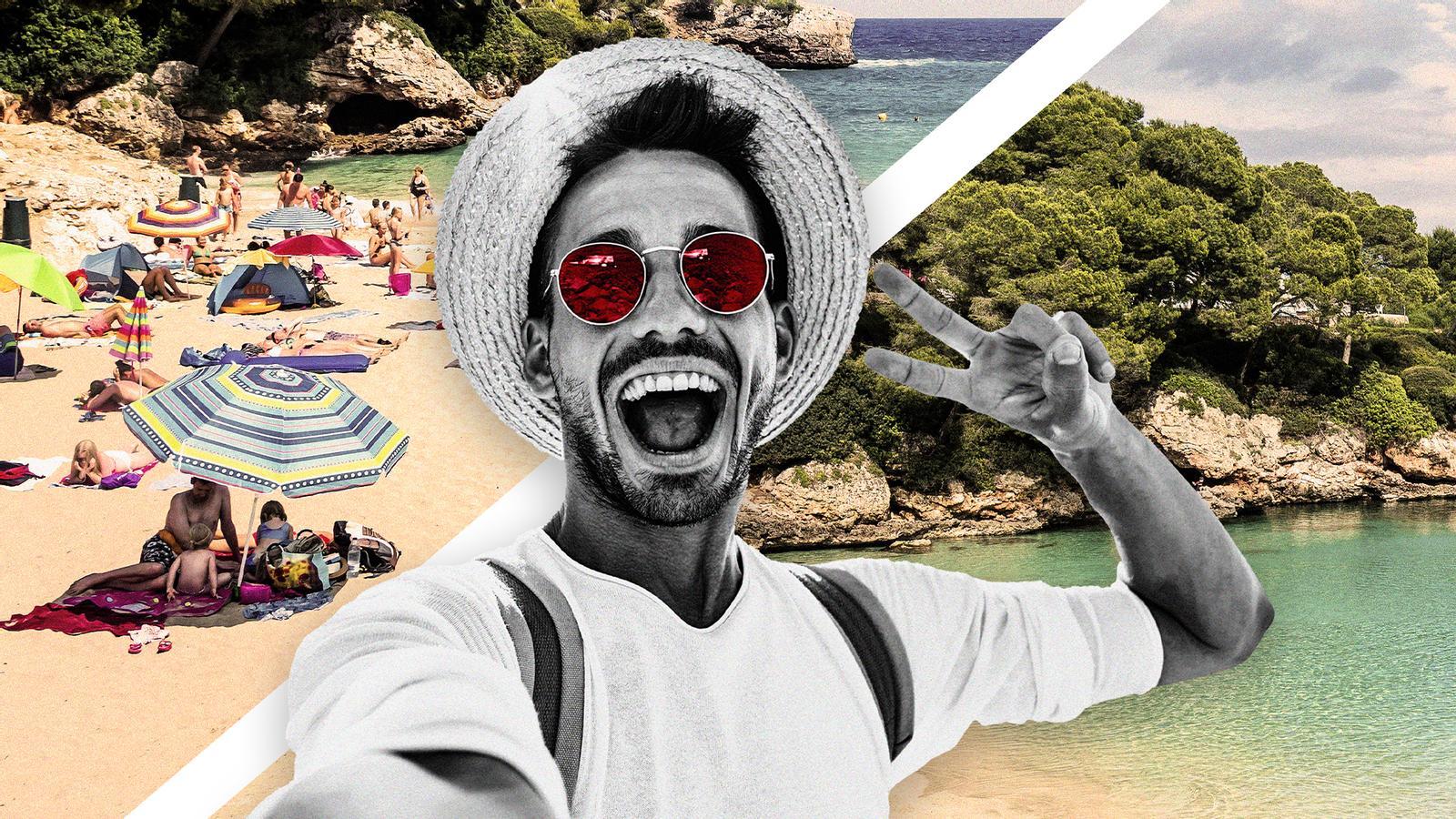Avoiding scams is possible. When faced with a very attractive recommendation or offer channeled through an influencer—who may even be promoted through a manager or agency, figures that are on the rise—Lalueza emphasizes: "If it's too good to be true, it isn't." It's a good idea to inquire about the company making the offer and the reviews it generates, or to be wary of excessively low prices or requests for alternative payment methods, such as an international transfer, according to the Catalan Cybersecurity Agency.
Can we trust travel influencers?
Content creators inspire trust, but it's best not to blindly accept all their recommendations to avoid being played a trick on us.

BarcelonaAt this time of year, unless we're enjoying a vacation, the desire to take one grows. To give ourselves a well-deserved break from the routine, we may have spent time and money planning a nice trip and finding the most suitable accommodations. To make up our minds, we can draw inspiration from some of the idyllic images that we've seen. influencers They post on social media: a paradise beach or a remote location, presented as if they were places yet to be discovered and providing a guaranteed escape. However, with influencers, not everything is always what it seems, and even if we get the impression that their recommendations are completely trustworthy, it's worth doing some checks before blindly following them.
A travel influencer is "a person who, through social media, has generated a community interested in tourist destinations," explains Ferran Lalueza, a professor at the Department of Information and Communication Sciences at the Universitat Oberta de Catalunya (UOC). By capturing the attention of the community—which doesn't consist so much of a large number of followers as a substantial portion of them who engage and interact with the content—sharing it, generating comments, and even establishing dialogue with the creator—the influencer thus ends up becoming "a reference for brands."
While these profiles are required by law to disclose when it's paid content—especially those with the most followers—they don't always do so, and they're popular with users because they have "an aspirational tone," explains Silvia Martínez, also a professor at the UOC's Faculty of Information and Communication Sciences and director of the Social Media Master's program. They may not always cover tourist destinations in great depth, but they use "very striking images," Martínez emphasizes, which take us to paradisiacal places and allow us to imagine ourselves visiting them: "They transport us to places we probably couldn't go to, and it's a way to escape from everyday life."
"Deceptive" feeling of proximity
The trust they inspire in users is key and is generated thanks to the sense of proximity they convey, Martínez continues: "They show their daily lives and it's as if they were another family friend." Furthermore, when a content creator publishes only about a specific area, as in the case of tourism, they enjoy an extra layer of credibility. "That person ends up being perceived as an expert and has a community very interested in that topic," Lalueza emphasizes. Therefore, a priori, "they try to be very careful when recommending certain things," because they have knowledgeable followers, who in turn trust the influencer even more because what they recommend supposedly has a face and eyes. However, Lalueza warns that perceiving the influencer as someone very close is "a misleading impression."
Overconfidence can backfire. Before summer even arrived, one incident served as a reminder of why we should be cautious about travel recommendations. At the end of May, the consumer organization Facua uncovered a scam involving a supposed online travel agency, 7Vuelos (Sietevuelos.com), which was advertised on social media by at least fifteen travel influencers with over 12 million Instagram followers. Under the guise of a launch offer, the agency offered trips at very low prices to destinations such as New York, Tokyo, Mexico City, Paris, London, and Dubai for a limited time. However, users who fell for it paid €1,000 through the website and received neither the plane tickets nor the hotel reservation.
Call for creators' responsibility
Although influencers often claim they would never offer anything they haven't tried or haven't been convinced by, the case of 7Vuelos "shows that this claim often has no basis in reality; they just say it to look good," Lalueza argues. However, when a potential scam occurs, he distinguishes between two cases: content creators who "may themselves be victims of deception by companies that get them to promote things that shouldn't be promoted," as would have been the case with 7Vuelos—although Lalueza believes it will also be the influencer's responsibility to address this—and those for whom the responsibility goes up a notch, because "they are the architects."
In any case, Lalueza encourages us to "remember that the relationship you've created in your head with the influencer isn't real." If you have a problem stemming from their recommendations and you turn to them for help, "they'll be unlikely to assume this responsibility because they don't have the emotional bond you have with them." For Martínez, there's no doubt that influencers should be aware of their ability to influence certain behaviors, especially when a vacation is at stake. "If you spend all year working toward a trip and in the end, based on the advice I've been given, it ends up being a bad experience, there's a call to responsibility that should be kept in mind," Lalueza concludes.
Users also want to boast on social media about having been to an attractive location, a desire also fueled by influencers and one that is multiplying places besieged by overcrowding, such as Caló des Moro in Santanyí (Mallorca) or Sirmione (Italy). "You can even die of success, because success itself makes the destination lose its initial appeal, which is simply being a less-crowded place," says Lalueza, who fears that between the influencer phenomenon and others, such as low-cost flights, "there will practically be no corner of the world left unexploited by tourism."
